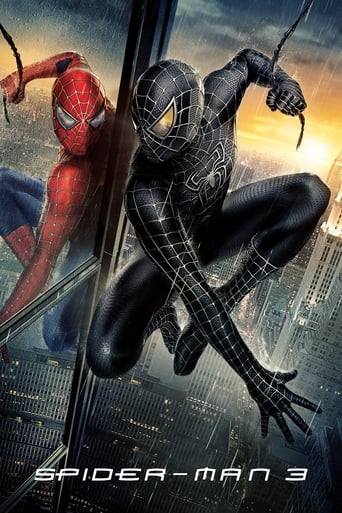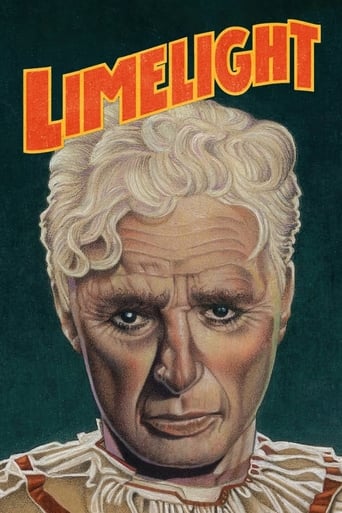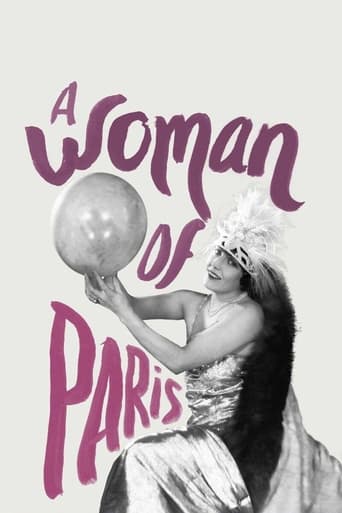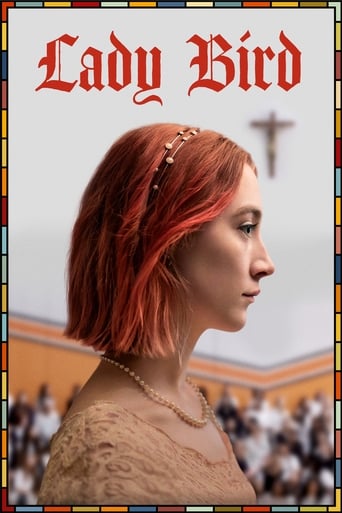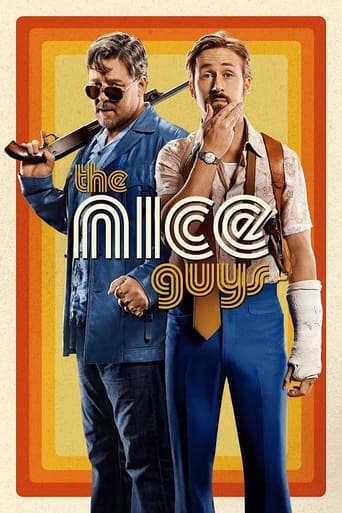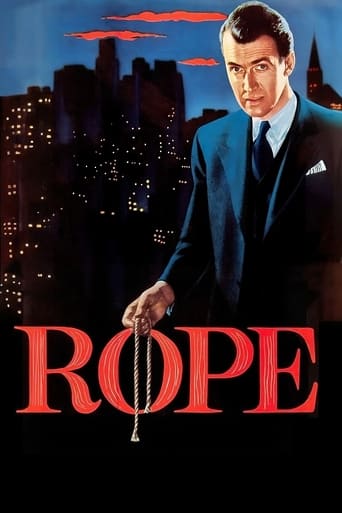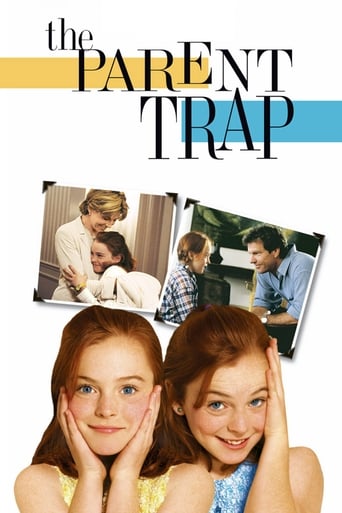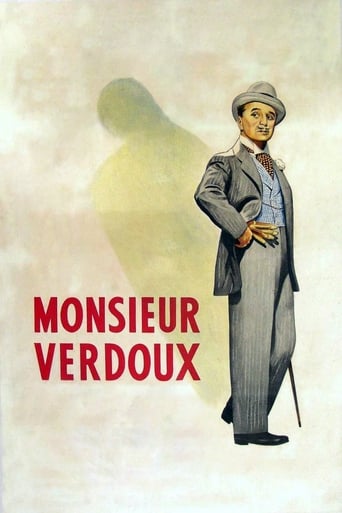


Monsieur Verdoux
The film is about an unemployed banker, Henri Verdoux, and his sociopathic methods of attaining income. While being both loyal and competent in his work, Verdoux has been laid-off. To make money for his wife and child, he marries wealthy widows and then murders them. His crime spree eventually works against him when two particular widows break his normal routine.
-
- Cast:
- Charlie Chaplin , Mady Correll , Allison Roddan , Robert Lewis , Audrey Betz , Martha Raye , Ada May


Similar titles
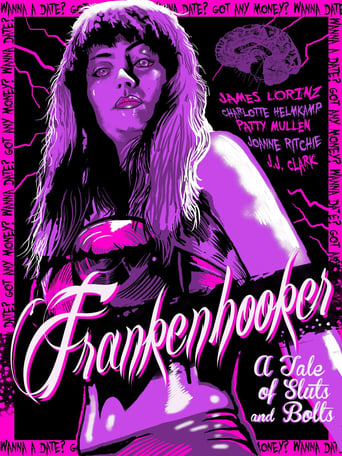
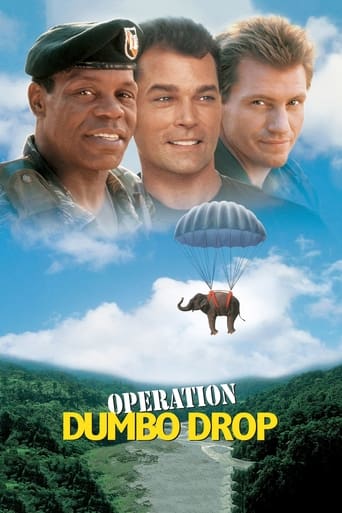

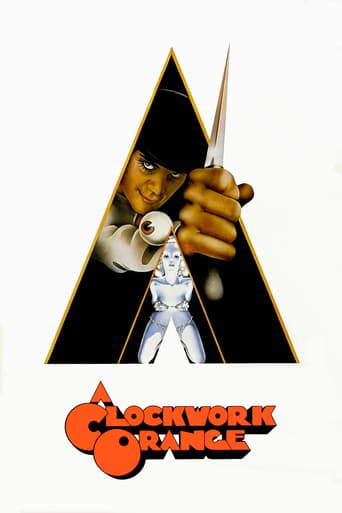
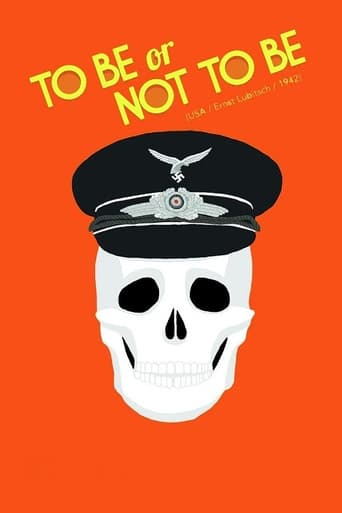
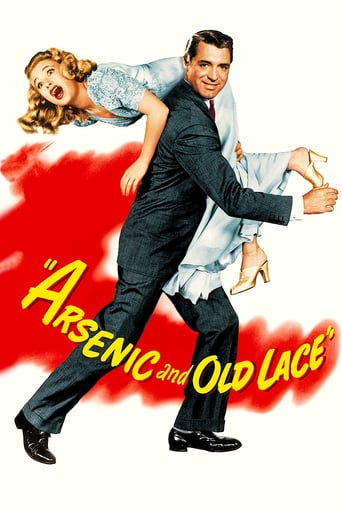


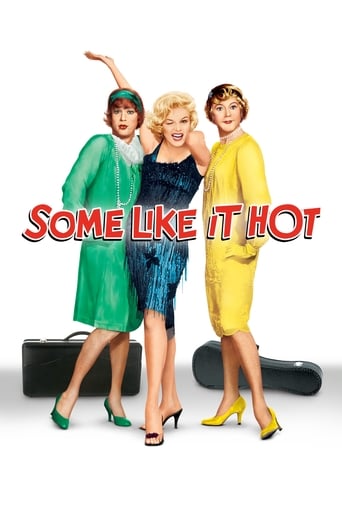
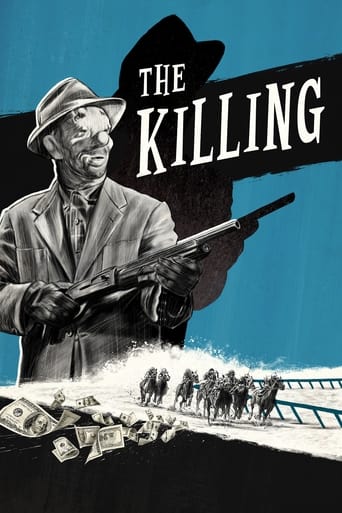
Reviews
Good concept, poorly executed.
It's hard to see any effort in the film. There's no comedy to speak of, no real drama and, worst of all.
While it doesn't offer any answers, it both thrills and makes you think.
The movie's neither hopeful in contrived ways, nor hopeless in different contrived ways. Somehow it manages to be wonderful
It took me years to settle down, mature, and approach this film with a fresh eye. Those looking for the little fellow to knock about and make them howl with laughter, are approaching this gem from the wrong direction. I know, because that's what *I* have done. After several years of relishing Chaplin's work up through "Modern Times", I found this film, (and The Great Dictator), hard to approach. Decades had to go by, before I could have a screening, which was worthy of its genius. I PROPOSE AN EXPERIMENT: Can movie fans like me round up some new viewers, who know nothing of Chaplin, and get their take on this without the pre-loaded expectations of The Gentleman Tramp? Best bits for me come in all sequences with Martha Raye ("THE MOUTH"), and a profound sequence inside a flower shop, where Verdoux sweet-talks a woman over the telephone. Watch the reaction of the florist listening- in. The scene is sublime and devastating. his first murder is artfully portrayed by letting us watch the outdoors, through a window, across a stairway going up. The bedroom in which the crime occurs is off to the left. Brilliant economy and unforgettable story-telling.
"Monsieur Verdoux" is unlike any other Chaplin film that I have ever seen before for two reasons only, reason 1 the story is much different than Chaplin's stories to his other films for example The Kid (1921),and The Gold Rush (1925), reason 2 because Chaplin doesn't usually play villains in his movies and in this movie he does play the bad guy for the first time ever in his career and as a result he was deliberately snubbed for a best leading actor Oscar as well as an Oscar for best director but only got a screenplay nomination. The movie tells the story of a killer named Henri Verdoux (played by Charlie Chaplin) who murders women in order to support his wife and son (that is a true idea for Orson Welles to give to other filmmakers that were working around the time he started working in Hollywood), this movie is not only one of the best movies of 1947 it is one of Chaplin's best movies period alongside The Kid and the gold rush.
This is a brief review of Charlie Chaplin's last six feature films.A comical take on Lang's "Metropolis" (1927), Chaplin's "Modern Times" opens with the words "a story of industry and individual enterprise, humanity crusading in the pursuit of happiness!", an ironic jab at the mantras of industrial capitalism. The film then finds Chaplin reprising his iconic role as "the tamp", a poverty-stricken but lovable outcast whose ill-fitting clothes epitomise, amongst other things, his inability to fit in.The film watches as the tramp struggles to survive in a depressed economy. Like "Metropolis", it satirises labour, management and dehumanising working conditions. Elsewhere life for the worker is seen to be precarious, alternatives to playing the game are but death or prison, giant clocks speak to the daily grid of blue-collar workers, bosses are shown to be obsessed with speed and production, the property class relies on police brutality and all-encompassing surveillance, and the workplace itself is painted as an absurdest torture chamber. The film ends with the tramp on a road, America's future uncertain."Modern Times" made waves when it was released. It was banned in fascist Germany and Italy, then allies of the West, and scorned by those in power in the United States. It was also heavily praised in the Soviet Union and France, particularly by philosophers Jean-Paul Sartre, Simone de Beauvoir and Maurice Merlau-Pony. The film's middle section, which featured Chaplin waving a red flag and unwittingly leading communists and worker unions, would get Chaplin on several government watch-lists.Chaplin followed "Times" with "The Great Dictator". Hollywood studios wanted the film scuttled, so Chaplin financed it himself. It contains two criss-crossing plots, one about a Jewish barber who is essentially persecuted by Nazis, the other about a brutal dictator, a stand in for Adolf Hitler. Funny, scary and sad, the film would rock the US establishment. Hitler was, at the time, a US ally and good for business. What's more, he was viewed by those in power as a tool to destroy communist Russia. For many, Chaplin was a "subverisive" who was "inciting war with an ally". Deemed particularly offencive was a last act speech in which Chaplin urges the people of the world to "love one another", "throw away international barriers" and foster an "international brotherhood". Though deliberately vague, this speech was viewed as inflammatory. Was Chaplin extolling the virtues of the United States or the Soviet Union? Regardless, the US' approach to the conflicts in Europe promptly shifted. It became an ally with Russia, Hitler became the enemy and Germany attacked Russia. In the blink of an eye, "Dictator" went from being sacrilege to prophetic.Chaplin, British, was born into extreme poverty and often found himself sleeping on the streets of London. As such, he identified with his "tramp" character completely, as did millions word-wide, who saw themselves in the tramp: desolate, poor and forever bumbling down life's highways. Prior to shooting "Times", Chaplin would embark on a tour of the world, intent on seeing the effects of poverty. He'd talk to many prominent figures, most notably Churchill, George Bernard Shaw, Einstein and Gandhi.As Chaplin grew in consciousness, so would FBI files on Chaplin. He was put under government surveillance and forced to appear before a Senate subcommittee in 1941 where he was accused of being "anti American" and an "unofficial communist". Many newspapers, including the Times, began a campaign attacking Chaplin, and called for his deportation. In the mid 1940s he was charged with the Mann Act and the FBI would collude with newspapers to smear Chaplin as a sex maniac who "perverted American culture". From here on, conservative political pressure groups would attack each new Chaplin release. Some of his films would be boycotted or outright banned. In 1947 he'd be brought before the HUAC committee.Chaplin followed "Dictator" up with "Monsieur Verdoux". A black comedy, the idea for which came from Orson Welles, the films stars Chaplin as a bank clerk who loses his job and so murders women for cash and land. The film's point is explicit: if war is an extension of diplomacy, then murder is the logical extension of business. And so banking terminology is used to rationalise murder, weapons manufactures are idolised and the poor are condemned for trying to play by the rules of the wealthy. "Numbers sanctify!" Chaplain says, pointing to Hiroshima, Nagasaki and the ruthlessness of post-war capitalism; kill millions and you're a hero.Next came "Limelight", Chaplin's ode to silent film. Elegiac and autobiographical, the film stars Chaplin and the legendary Buster Keaton as two fading comedians. A meditation on time's passing, the film's also relentlessly optimistic; man must assert his will, his desires, no matter how glum the times! The film would be banned from several US theatres. Chaplin himself was swiftly banned from entering the US and several of his assets were seized. He'd live in Switzerland henceforth."A King In New York" followed. It finds Chaplin playing an usurped "dictator" who seeks refuge in America. Also autobiographical, the film pokes fun at various aspects of US culture, its irrational hatred of all things left-wing and the way in which humans are both always branding and refuse to look beyond the political, beyond superficial branding, to tolerate even the slightest bit of difference or dissent. Chaplin's son would play a hilarious anarcho-communist, but the film as whole messily mixed silent gags with sound comedy.Chaplin's "A Countess from Hong Kong" confirms that Chaplin's films were moving from the lower to the upper echelons of society. Here Sophia Loren plays a Russian "tramp" who is taken in by a wealthy politician (Marlon Brando). His worst feature, the film watches as "humane" capitalism benevolently absorbs the "detritus" of Russia and Asia. Chaplin accepted an honorary Oscar in 1972. He received the longest standing ovation in Oscar history.7.9/10
Although Limelight is the only Chaplin film that I consider a top favourite, as a director he has a solid position in my top 10. His wisdom and wit are always wonderfully integrated into his brilliant simple storytelling. Here in Monsieur Verdoux, it's perhaps his oddest film. It's a great idea for a contradiction, who's the last person you'd expect to play a serial killer? Chaplin himself. His own face is a mask of an innocent and he's instantly a fascinating character. This might be one of the earliest cases of an anti-hero I've seen as Verdoux is very nonchalant about his immoral actions. There's an odd tone about the film. Whilst in the same style as Chaplin's previous lighter films, its script is pitch black and cynical. It's a shame that the movie plods along with a relatively slow pace and not much momentum as its moments of satire and slapstick are hilarious, if rarely as over-the-top as his Tramp outputs. This is a truly black comedy and that makes it a challenge to decipher how you feel about it. It's a film about how desperate people will reach for desperate measures and the hypocrisy in the punishment system. It critiques those in power who are nonchalant about their own immoral actions who don't face the same punishment. It's an interesting idea, but one I wish was more fleshed out. Wickedly entertaining film either way.8/10

